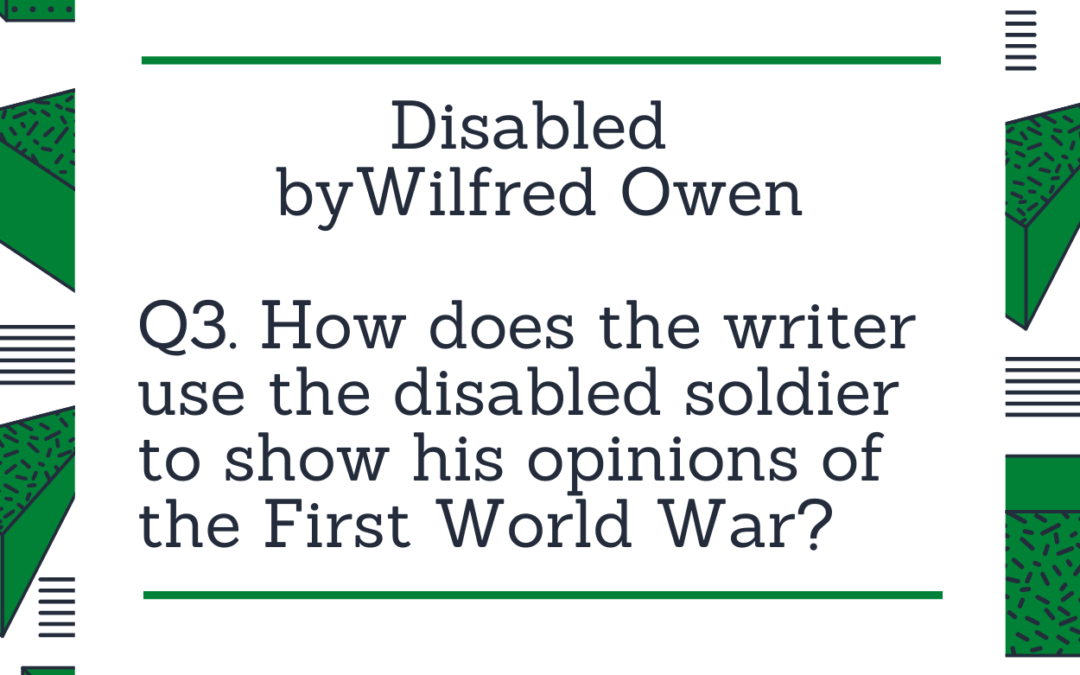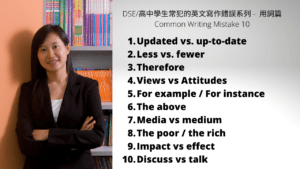Edexcel English IGCSE: Disabled by Wilfred Owen
Q3. How does the writer use the disabled soldier to show his opinions of the First World War?
In your answer, you should think about:
- the soldier’s reasons for going to war;
- the soldier’s experience of war;
- the soldier’s current situation;
- the use of language.
You should refer closely to the poem to support your answer. You may use brief quotations.
Edexcel English IGCSE Model Essay by an Expert
Wilfred Owen, himself a soldier in the First World War, uses this poem to express his disapproval of the war. The soldier’s experience of joining the army, the war itself and his current situation are all evidence of Owen’s disgust at the treatment of soldiers.
The reasons that the soldier gives for joining the army show that Owen believed that young men were not sufficiently informed about the potentially life-changing impact of their decision. The disabled soldier joined the army flippantly, for superficial reasons such as “to please his Meg”. The line “he didn’t have to beg” subtly implies that the army were desperate for recruits, since they accepted him even though he was under-age. They were even “smiling” as they wrote his fake age, which gains gruesome irony when we consider his current horrendous situation. It implies that the recruiting officers did not care about the young men joining the army.
Owen uses this poem to portray the gruesome reality of war. The soldier’s injury is described in graphic detail, causing disgust in the reader. The image, “leap of purple spurted from his thigh” is vivid; the use of colour allows the reader to visualise the injury. Owen also emphasises the life-threatening nature of the injury with “half his lifetime lapsed”; the alliteration of ‘h’ and ‘l’ draws attention to this line, forcing the reader to linger on the idea that the soldier’s youth was wasting away. By using such sympathy-inducing images, Owen shows his view that the war was a terrible thing for young people to experience.
Perhaps most poignant is the soldier’s terrible current situation. Owen uses contrasts to emphasise the differences between the soldier’s life before and after the war. For example, to contrast with his youthful looks before the war, Owen uses a blunt, simple statement to say that “Now, he is old”. This simplicity creates a tone of anger and bitterness, because the war has robbed him of his youth and beauty. Owen also disapproves of the way that soldiers were treated after the war. The soldier becomes a passive receiver of help, and must “take whatever pity they may dole”, showing that he receives sympathy and charity, rather than the admiration and gratefulness that he deserves for sacrificing his youth in defending his country. The poem ends with a sad, repeated question, “Why don’t they come?” This moving plea shows that the soldier is now lonely and helpless. It creates a plaintive, regretful tone.
In this poem, Owen criticises the way that soldiers were recruited, and of how they were then treated once they returned to their home country. Owen himself died before the end of the war. He met a fate worse than that of the disabled soldier: death.



